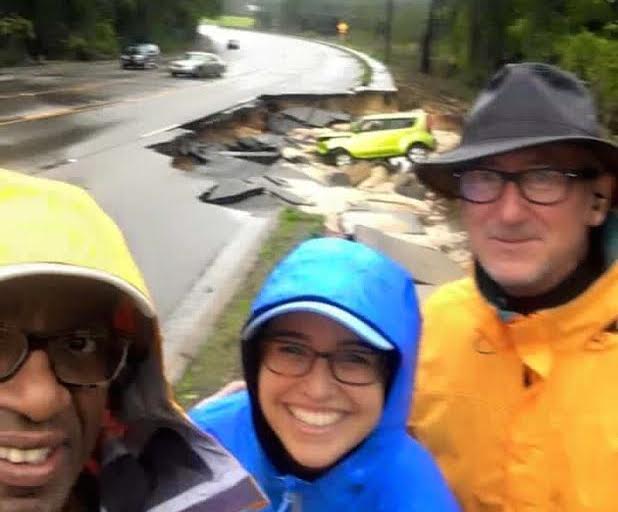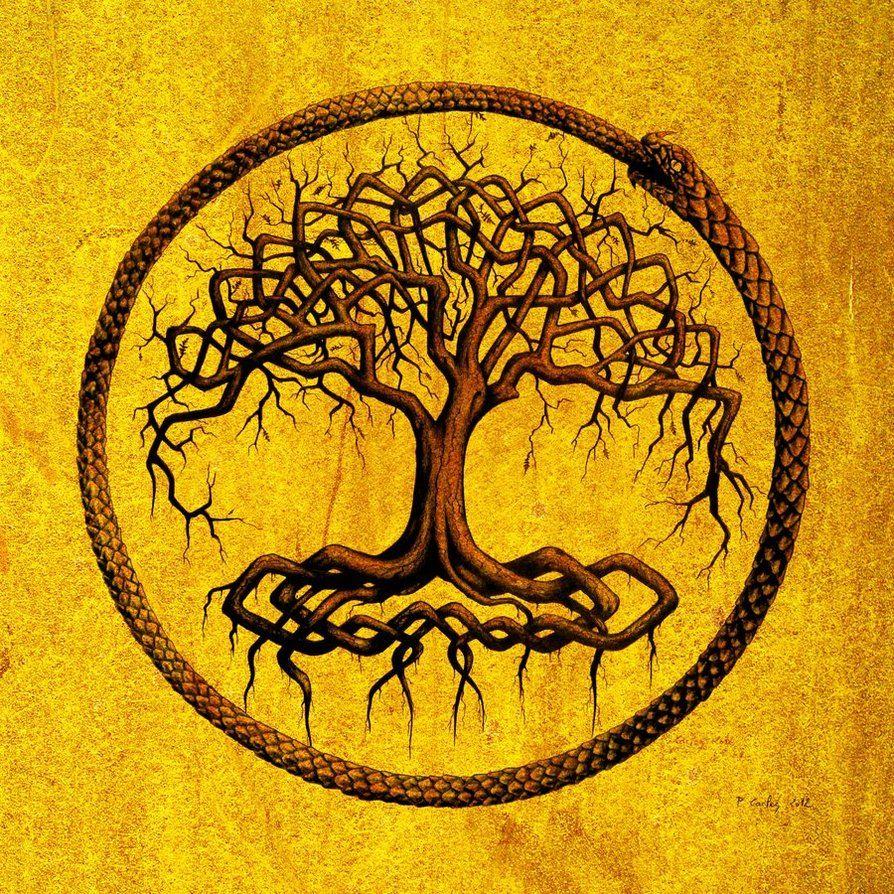Humanity, Not Quite Ready for Civilization: Reverence for Life in a Washed-Up World
Click to read Parts 1, 2, 3 and 4 in the “Humanity, Not Quite Ready for Civilization” series.
Sometimes you have to break a thing down into its simplest parts to understand it afresh.
At other times, you have to be broken, or nearly broken, by the Universe to understand a thing.
As I type this, the city where I reside, Columbia, South Carolina, has been inundated by a Once-in-a-Millennium Deluge. Literally more water than you can shake an insensitive Al Roker selfie at has fallen all around us. Businesses, homes, lives, washed away by raging floodwaters.
At present, we are without running water; we have no idea when we will regain running water. I had the foresight and enough life-in-Haiti experience to collect standing rainwater for toilets and other non-potable purpose. Plus I have a storehouse of bottled water to last four or five days—maybe a week. (Also, thank God I snagged the last two bags of Doritos at Target before it shut its doors. O, why didn’t I buy French onion dip?)
Most important of all, I have a Community. And I am an active member of my Community. People are reaching out to me to assist with my needs. And I am identifying and fulfilling the needs of others. And we are getting by—we are turning hope into progress. Me and my Muslim and self-identifying bubba neighbors—against all odds—we are holding fast Civilization.
We are recognizing the fragility and precariousness of life. And we are maintaining it. Entropy and Theodicy, you better damn well get out of our way—we are coming for you. We are armed with bags of chips and philadelphia and senses of humor.
No matter the outcome of the next few days, we win. We are revering life. We have “done unto others, as others would do unto us.” We have brought warmth to a Cold Universe. Victory.
{The above passage was written the evening of Monday, October 6, 2015. Things were godawful that night. The running water has now been restored. Yet we’re still in the thick of crisis—we are being told that drinking tap water will turn us into bacterial zombies. But the opportunity to understand Civilization afresh is not being squandered.}
.
…
Back to reducing a thing to its simplest parts to understand it afresh. Here are some examples:
Sports. Every March, our nation proudly loses its collective mind over a collegiate athletic tournament wherein human beings toss a brown sphere into an elevated orange ring. Then, throughout the final third of each calendar year, we cheer for undergraduate and professional males in padded gear as they clobber one while carrying a prolate spheroid across a line of chalk at the end of a rectangular field. S-P-O-R-T! B-A-L-L! Go, sport ball!
Political conservatism. Athletic absurdity is nothing compared to the Republican Party, which for decades has convinced millions of struggling, naive Americans that Jesus Christ wants them to vote against their own self-interest in order to support the Mammon-teat-sucking, pro-Gordon Gekko oligarchs who blissfully sacrifice their constituents’ children plus foreign wedding parties upon the Global Military Industrial Complex altar. “And for what? For a little big of money.”
U-N-C-L-E! S-A-M! Go, Uncle Sam!
We slaughter because we strategically care! Oops! Gotta throw a flag there. Fifteen-yard penalty for “collateral damage” in Afghanistan.
Where were we? Ah yes. Breaking things down into their lowest common denominator—that’s what the great philosopher Albert Schweitzer did in his quest to discover the meaning of life.
While many great thinkers choose to wander polysyllabic labyrinths filled with complex mathematic equations and graffitied names like Liebniz, Aristotle and Hegel to find truth, Schweitzer turned to nature—to be specific, the Ogooué River in what is now Gabon, a small nation directly north of Congo in West Africa.
Albert Schweitzer was one of Europe’s foremost classical musicians, theologians and philosophers, and he left behind a career of utmost academic paparazzi fame in order to become a medical missionary at the edge of the known world. Before you start hurtling ignorant remarks about Schweitzer the Great White Hope, consider his commitment to provide care for a “leper village” of more than 200 individuals that grew up beside the clinic he established. Let anyone calling Albert Schweitzer a humanitarian poser first change a leper’s bandages.
One century ago, in September 1915, Albert Schweitzer discovered enlightenment. “What is Civilization?” he had long asked himself. The answer was to be found in a long journey up the Ogooué River:
In that mental state, I had to take a long journey up the river … Lost in thought, I sat on deck of the barge, struggling to find the elementary and universal concept of the ethical that I had not discovered in any philosophy. I covered sheet after sheet with disconnected sentences merely to concentrate on the problem. Two days passed. Late on the third day, at the very moment when, at sunset, we were making our way through a herd of hippopotamuses, there flashed upon my mind, unforeseen and unsought, the phrase: “REVERENCE FOR LIFE.” The iron door had yielded. The path in the thicket had become visible. Now I had found my way to the principle in which affirmation of the world and ethics are joined together!”
There, amongst the hippopotami, Schweitzer discovered the building blocks of ethics:
The most immediate fact of man’s consciousness is the assertion ‘I am life that wills to live in the midst of life that wills to live.’ (from Out of My Life and Thought)
I want to live. Yahoo. T-Rexes want to live. So do mushrooms and former Alaskan governors. As do soaked South Carolinians. So what? How does this observation serve as the foundation of all things ethical?
The other day, I was presented with a fresh understanding of Schweitzer’s Reverence for Life. While going through my second grade daughter’s backpack at the end of a school day, I discovered a crumpled notebook page with a rainbow design penciled across the header. I flattened the paper and closely examined a section of partially-erased writing: there were two columns, one devoted to “enemes” and the other to “frends.” There were names scrawled in both columns. On the other side of the paper, in semi-erased pink pencil was the following note:
“If Im on yer eneme list, we cant be frends eethr, ok?”
I realized that my child was being drawn into the early stages of that hideous Enemy-Making Machine. I called her into the room. She was astonished at my ability to read erased pink penciling, then was somewhat indignant when I laid down the law that our home has a zero tolerance policy when it comes to Enemy-Making.
“But you don’t understand!” my daughter insisted. “So-and-so said such-and-such about so-and-so, and then so-and-so made a pinky promise with so-and-such to make sure that such-and-so and all her friends could never—”
I remained firm: “In this home, we declare no one an enemy.”
My daughter stomped away; in the moment, it appeared I had lost. Yet several days later, she appeared before me with a new list, a “frends onlee list.” On this list were her friends, as well as “the mene girls in clas,” also the teachers, all her relatives and neighbors, the animals at the zoo plus animals everywhere including “marsoopeals we hav never sene,” not to mention plants and trees, bacteria and archaea, etc., et al.
Seeing that the list could easily spin out of control, I made a suggestion that she abbreviate.
“To what?” she asked.
“How about just Reverence for Life?”
And there you go. It’s that simple. When it rains cats and dogs, be willing hold out an umbrella for that special Vladimir Putin in your life. That is Civilization.
Oh sure, Reverence for Life decisions can get pretty complicated:
…Reverence for Life is not a naïve way of looking at the world. There is life that must be taken. We do not spare the mosquito nor the bacterium—nor, generally, life which would harm us. And we must kill a fish to feed a pelican. (Those who have read Albert Schweitzer will understand.) But even in doing so, it is always worth pausing to consider the miracle of evolution contained even in a single-cell organism.
But by pausing to consider the miracle that is life—all life—we are more likely to take life only when absolutely necessary. To treat life with compassion. To make careful choices about maintaining life.
In the end, Reverence for Life is simply a Friends and Enemies list with an empty Enemies column. The only problem is: can humanity as a whole arrive at the same conclusion as a seven-year-old girl?
.
…
Conclusion
This five-part series began with a simple question: despite its constant dabbling in barbarism, is humanity capable of building a foundation for Civilization?
Since that first essay back in May, South Carolina, the state where I reside, has twice caught the attention of the world—and both instances of focus have provided Civilization-building opportunities. Unfortunately, it took an unthinkable act of racist-inspired mass murder to get South Carolina to remove the Confederate Flag. And it took an Act of Poseidon to get Lindsey Graham to support federal aid for natural disaster victims. Still, even in this Mecca of Tea Party conservatism, hopeful sprouts of Reverence for Life are popping to the surface.
Just a few days ago, I was huddled at home in the aftermath of 20-plus inches of rain, wet, worried, wondering if the sun would ever shine again. Today, there was sunshine and Community—and I spent my day handing out cases of bottled water.
Rich and poor, they came for water. They came in $80K sedans and ground-scraping jalopies. And the shoulders of each and every human being felt the same to me.
We’re not that different, any of us. We create all these constructs to distinguish ourselves from one another. But at the end of the day, we are limited organisms that won’t make it more than two twists of this Little Blue Planet without sufficient amounts of that little, refreshing molecule.
Be kind to your fellow human being. We all need the same things. We are all life that wills to live in the midst of life that wills to live.
{Part 5 of a five-part series, “Humanity: Not Quite Ready for Civilization,” published on the website Forward Progressives from May 2015 to October 2015. The website recently closed down without maintaining an archive. The series received more than 1 million views.}
- Posted by
 Arik Bjorn
Arik Bjorn - Posted in Arik's Articles
 Oct, 12, 2015
Oct, 12, 2015 No Comments.
No Comments.
I think Uber Nights is the perfect bathroom book. If there are any public libraries out there listening, I think they should put a copy in every stall.
-Read more about Uber Nights







